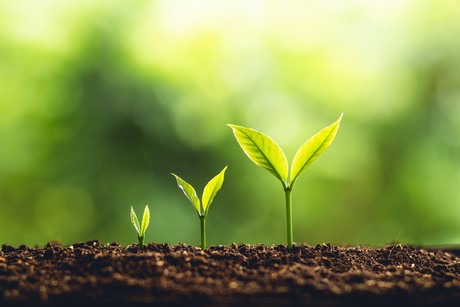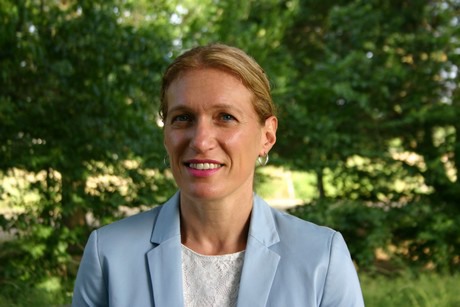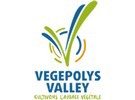On Thursday, 27 June, the competitive clusters, Vegepolys and Céréales Vallée-Nutravita, finalised their merger process. This rapprochement, which began in October 2018, was selected by the French State at the Phase IV announcement of the competitive clusters endorsed for 2019-2022 on 6 February last. With this merger, these two clusters give us Vegepolys Valley, a new cluster with international ambitions and a national dimension. It will rely on its strong territorial roots in four different regions: Auvergne-Rhône-Alpes, Brittany, Centre-Val de Loire and Pays de la Loire, represented by seven sites located as close as possible to its members. From its headquarters in Angers, the cluster unites more than 500 players in the plant sector, focusing on seven areas of innovation. Séverine Darsonville, a farmer based in Puy-de-Dôme and a member of the Board at Limagrain, who has been closely following R&D, has been elected President.

Vegepolys Valley: Séverine Darsonville to head the International Plant Cluster
On 19 October 2018, Yves Gidoin, Chairman of Vegepolys (based in Angers) and Jean-Yves Foucault, Chairman of Céréales Vallée-Nutravita (based in Clermont-Ferrand) submitted a joint bid to the call for “Phase IV” applications for competitive clusters engaged by the State. The aim of this joint project was to form a Global Plant Cluster, combining the strengths of two already well-established clusters. The first, one with international ambitions, attached to the horticulture, and the second, one with ambitions closer to home, to arable crops.
On 6 February 2019, the French Prime Minister, Edouard Philippe, revealed the list of the 56 clusters selected for Phase IV. He thus ratified the rapprochement of Vegepolys and Céréales Vallée-Nutravita and guaranteed the official endorsement of the fruit of their union for 2019-2022. A merger which is now up and running, in the terms of the ordinary and extraordinary general meetings held by the members of the two clusters, which met in Angers and Clermont Ferrand on 27 June 2019.
They have given birth to a major player in the plant sector, on a European and Global scale: Vegepolys Valley, chaired by Séverine Darsonville.

Based, since 1998, on a 60-hectare farm, close to Clermont-Ferrand, Séverine Darsonville produces wheat, maize, maize seed and sunflower. In addition, she has embarked on organic production on three hectares of land given over to lavender and camomile - products intended for the distillation of essential oils. Holder of an advanced vocational training diploma (BTS) in Plant Technologies, Plant Breeding and Seed Technology (2001), she was elected to the Board of Directors at Limagrain in 2012. She is in charge of overseeing the arable crop and vegetable seed businesses. In addition, she keeps a close eye on the Group’s R&D activities.
“For me, farming is a calling and the issues that we have to deal with - food-, environment-, energy-, and climate-related - are many. I am therefore proud to take the chair of Vegepolys Valley. I have always been passionate about innovation and I consider plants to be behind many of the discoveries that will enable us to focus on more competitive and more qualitative production, but also on produce which is more environmentally friendly and respectful of human health. At the heart of our various sectors, competitive clusters play the role of connecting people, providing a space for dialogue and advice and assistance. They are the key to the success of transition in our fields of activity. With this merger and the advent of a large-scale cluster, the players in the plant sector have given themselves a powerful voice to represent themselves among French, European and Global decision-makers. Vegepolys Valley belongs to members from the Vegepolys and Céréales Vallée-Nutravita clusters. Initially, we will, therefore, have to create a link between regions and develop a feeling of belonging in order to incorporate their specificities and the particular issues they face. Diversity is an asset for the Cluster: plant production has always been multi-faceted and SMEs and major groups complement each other. As an independent farmer and director of a major group, I see this on a daily basis and fostering this coming together in a single Cluster will be one of my priorities”.
Uniting players down the entire plant value chain
With an operating budget of 2.6 M€ and with the support of a team of nearly 30 people, Vegepolys Valley’s influence already reaches into four regions: Auvergne-Rhône-Alpes, Brittany, Centre-Val de Loire and Pays de la Loire. From its headquarters in Angers and the six other sites, the cluster involves twenty-eight FTE staff for more than 500 members: businesses (80% SMEs), research and training centres, professional unions and development organisations and consular chambers.
They are active down the entire plant value chain: upstream (development & selection, plant & soil health, machinery & equipment, digital & AgTech), from plant production (seeds & plants, arable crops, market gardening and fruit tree growing, ornamental horticulture, wine growing & cider growing, aromatic & medicinal plants) and processing/distribution (human & animal nutrition, nutrition for prevention & health, well-being & cosmetics, agro-materials & biotransformation, urban planting & living environment).
Vegepolys Valley provides them with a range of services that aims to encourage innovation and competitiveness: provision of information and brainstorming, support systems to help with the emergence of new projects, the creation of partnerships, financial backing and quality endorsements, and support in the publicity and presentation phase of research projects on emerging issues, among other things.
Developing a feeling of belonging
To remain as close as possible to its membership, the cluster relies on a strong regional network: an office in Angers, another in Clermont-Ferrand, and regional branches in Saint-Pol de Léon and Orléans, in addition to offices in Nantes, Rennes and Lyon. In order to facilitate such proximity, in line with Vegepolys Valley’s key areas of development, two regional vice chairpersons based in Pays de la Loire and in Auvergne-Rhone-Alpes have been appointed: Mr Retière, (Maraichers nantais) and Mr Laurent, (Pileje). The cluster’s executive has been completed with the nomination of two vice chairpersons in charge of international business: Yves Gidoin (JCT Plants) and research: Emmanuelle Chevassus Lozza (INRA).
To allow its research to move forward on an international scale and export its know-how, it will look to its networks of partners, such as the Plant InterCluster and two offices, in China and South America, as well as a network built up by Vegepolys since it was first founded as a competitive cluster with global ambitions.
Seven areas of innovation
Around the world, plant demand is growing because of the increase in the world’s population and the growth of livestock production in certain areas. It is also driven by the nutrition, health and well-being sectors, not to mention industrial concerns looking for alternatives to petroleum-based products through biosourced products. In France, plant production accounted for 41 B€ in turnover in 2017 (source: Agreste) and constituted the lion’s share of the 3 B€ surplus from gross agricultural production. In addition, worldwide it creates a great many new jobs, with more than 300,000 FTE jobs in plant farming operations out of 700,000 FTE in total. The food processing industry in plants achieves a turnover of nearly 40 B€ for more than 100,000 jobs (Agreste 2017).
Vegepolys Valley is now getting its membership involved in seven areas of innovation, which will be subject to joint research projects:
- Three areas for plant production, which is competitive, qualitative, environmentally friendly and respectful of the health of consumers and producers:
- Varietal innovation and seed and plant performance;
- Plant health;
- New technologies and practices for the production systems;
- Four areas for the development of food and non-food uses for plants to improve quality, consumer convenience, services, naturalness:
- Plants for livestock and human nutrition;
- For nutrition for prevention and health, for well-being, health and cosmetics;
- Agri-materials and biotransformation in plants;
- Urban planting.
For more information: Vegepolys Valley
Vegepolys Valley
www.vegepolys-valley.eu
